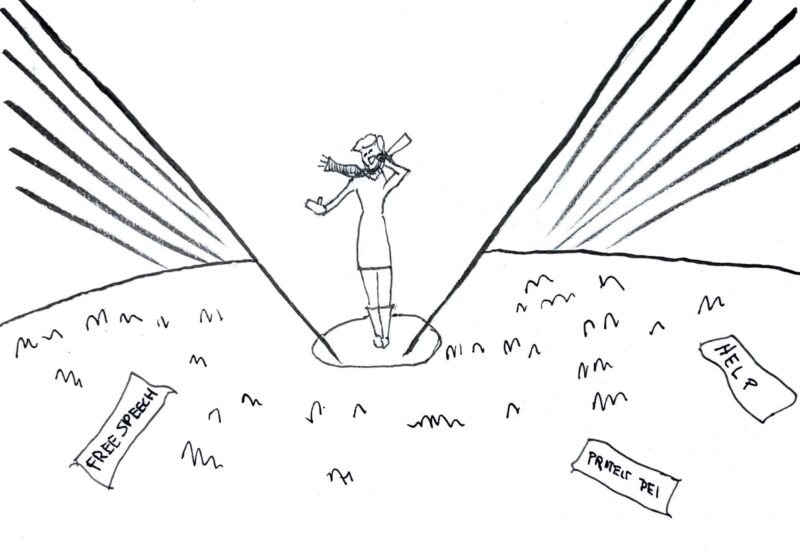SA’s Oct. 17 meeting, which was headlined by a presentation from University IT, began nearly 20 minutes late. The reason? Technical difficulties.
The bulk of IT’s presentation was spent discussing remedies in the wake of the system-wide Wi-Fi outage on the first day of class. UR’s Wi-Fi network saw an increase from 15,000 connected devices to over 20,000 at the start of the semester, which overwhelmed the wireless controllers, causing them to pass a bug from controller to controller that knocked out the entire wireless network.
To combat Wi-Fi failures, IT has been expanding the number of access points throughout campus on a building-by-building basis.
UR started installing wireless in 2002, with only 50 access points in Rush Rhees — a total that has now risen to 3,600 access points on the River Campus alone. IT plans to add an additional 1700 access points to the River Campus in the coming months.
IT is currently working to expand access point coverage in Rush Rhees, Wilson Commons, Susan B. Anthony Hall, Riverview, and LeChase. The University recently acquired Riverview from a third party and had to refit the buildings to support University Wi-Fi access.
Susan B. Anthony Hall will soon see an additional 200 access points go online, doubling the current total and fitting about every other room with an access point. Many will be placed within dorm rooms in order to increase the “concentration” of the connection points to allow for the network to accommodate increasing demands over time.
“You don’t just put a device on the wall and it magically attaches to the world,” Assistant Director of IT Doug Bentley said. “There’s a lot of background infrastructure. We have to do asbestos pathways, getting into your rooms, getting into spaces that we traditionally just have not had access to.”
Traditionally, IT has scheduled their upgrades to match building renovations and maintenance. However, current needs have forced them to shift their timelines up.
The presenters also discussed a number of in-progress changes being made to the software end of IT’s responsibilities. Since 2015, they have been working on progressively shifting all University sign-ins away from NetID and towards UR Active Directory. 1,100 apps have already been shifted, and they say the same change will be made to Blackboard in December. IT said Active Directory is a simpler, windows based authentication software which will continue to be supported by more applications and “different kinds of authentication groups.”
As always, incremental improvements are also being made to UR Student. AP credits will now be automatically loaded from admissions information rather than being entered manually on the back end. They will also be piloting automated prerequisite checking opposed to the current “human best effort” approach of UR Student.
The speakers also discussed student security and encouraged students to enroll in a LastPass account provided by the university. LastPass is a manager that can create and store secure passwords for all types of internet accounts.
As IT continues to fix bugs, they encourage students to reach out when they encounter issues.
“One of the things that will help us in the long run might be, if you go out to [tech.rochester.edu], in the upper right hand corner there is a ‘submit a request,’” Bentley said. “If you’re having problems on campus someplace or you have a continued issue in any area, please, if you have time, if you have the cycles, open up a ticket, let us know where it is.”






